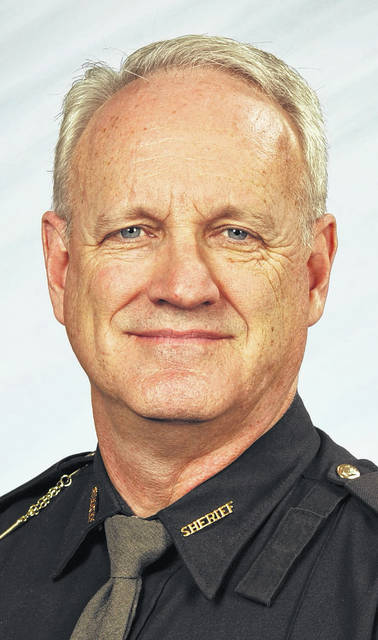
The police radio broke the silence reporting that two men were observed sleeping in a car in an apartment complex parking lot. It was early in the evening, and the time of day quickly made the nature of the call suspicious. Upon arrival, two men were found unconscious in the front seat and their breathing was labored. They were obviously in medical distress, and the needles and drug paraphernalia confirmed our suspicions. They were in the throes of an overdose from heroin, and if it weren’t for the caller and our intervention, they most likely would have died in that car that day.
That was over a decade ago, and I had chosen that evening as a police chief to spend some time in the field with the patrol division. Unknown to us was that this call would be the bellwether of an unforeseen flood of addiction and drug overdose.
I’ve been in law enforcement for nearly four decades. I served almost my entire career in central Ohio. But in the last five years, I’ve seen the introduction of the most addictive and lethal drugs that we have ever faced. It’s well documented now that the opioid addiction problems began with misinformation regarding the drugs’ true risks, and the over prescribing by a misinformed medical community for patients seeking a pain-free recovery. Add to that, the already growing population of addicts acquiring a cheaper form of cocaine and crack cocaine, and some of the most sophisticated suppliers providing logistical support to drug traffickers from a specific region in Mexico, and it has become the formula for tragedy.
Those of us who have been working the frontline and problem-solving this issue for the last several years know that we can’t arrest our way out of this crisis. It’s a complex problem that has required a well thought-out and multi-pronged solution. There is no one magic bullet to solve this epidemic.
Issue 1 does not provide the solution. It is a Constitutional amendment that deals primarily with the back end of the problem: incarceration; and it provides no substantive solution for prevention or intervention. The ongoing rhetoric that we are involved in mass incarceration of the addicted is just not true. But when you work with addicts routinely, and we do, you hear account after account that the fear of long-term incarceration was the last and most impressive form of accountability that drove them into rehabilitation. Frankly, many only “dried out” while they were in jail and began to receive the counseling and support needed to break free from the bondage of addiction.
We are providing counseling services and wrap-around structures for those wanting to leave the life of addiction and helping them transition back into society. Were it not for the aspect and threat of incarceration, most would not even seek help. While they may not want to be addicts, without accountability few, will choose help. The passage of Issue 1 will significantly undermine this tool and our efforts.
We are saving lives under the current system. While overdose deaths are still too high, they would be much higher were it not for the collective efforts of law enforcement, prosecutors, the courts, probation, and the treatment community. We are working together, and we have been for years. If Issue 1 passes, it will undermine the steps toward success we have made. You must remember this is a different category of drugs, more lethal with stronger addictive properties than any confronted previously. Dealers know this, and they are capitalizing on the weakness of these addicts. Issue 1 will simply provide more latitude with less impunity for the dealers and users if passed.
It is far too broad of a Constitutional amendment to provide directed and specific solutions for this problem. Constitutional amendments are not laws that can be amended. We will be stuck with this and its consequences. If Issue 1 passes, it will set us back. I’m not prone to hyperbole because I believe people want the facts. The fact is that most of the addicts I encounter and work with have expressed if it weren’t for the fear of incarceration, they never would have sought treatment, and many state the life they were leading was heading to death.
This is not a political issue, it’s a matter of public safety. Please support your local criminal justice practitioners and treatment providers. Vote “No” on Issue 1.


